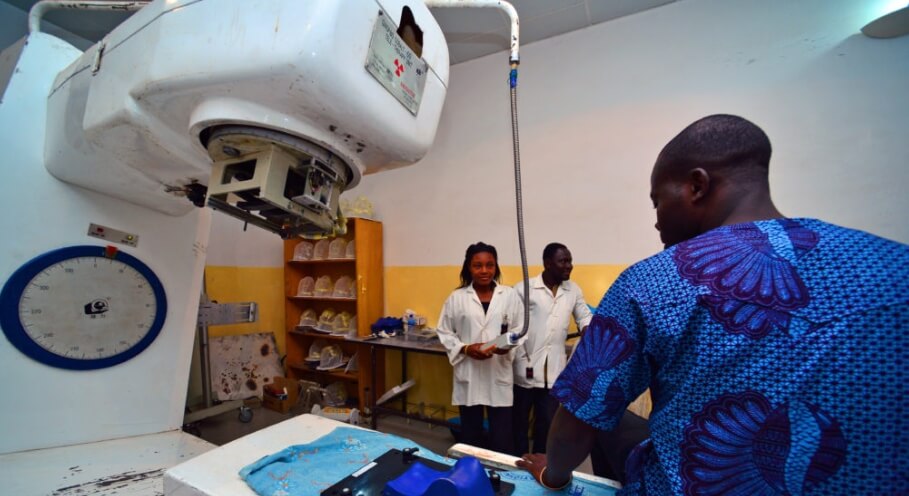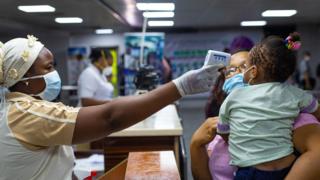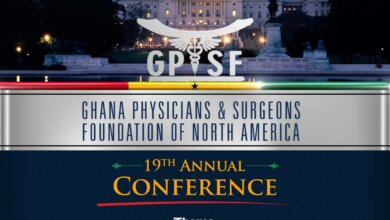Medical Negligence: Perspective on Legally taking on hospitals in Ghana

Cases of medical negligence have become a common occurrence in Ghana, causing damages, injury and death. Ghanaians over the years have had to deal with the bizarre, and sometimes awkward, loss of their loved ones at the hands of our medical practitioners at various healthcare facilities across the country.
In the last couple of weeks, Ghana’s media space [traditional and new media] has been awash with sad stories of the death of many people due to the country’s ailing health system. Some of these unfortunate deaths were caused by negligence on the part of the medical practitioners, i.e doctors, nurses, midwives, laboratory officers, etc. Some have also been caused by failure and lapses in hospitals.
The failures in the country’s health system include; the lack or non-availability of infrastructure, lack of proper and requisite equipment for treatment, practitioners failing to give the basic standard care a patient will require at a particular time, amongst a host of issues.
For this article, our focus will be on deaths or medical damages caused as a result of negligence on the part of health professionals and/or hospitals.

Pulse.com.gh explores the legal avenues available to citizens, when they feel or suspect medical negligence caused the loss or damage of a loved one in a medical facility.
A patient visiting a doctor/hospital expects medical treatment, with all the knowledge and expertise of the doctor, to help mitigate or completely eradicate his medical problem. Thus, a doctor/hospital owes certain duties to their patient and a breach of any of these duties could constitute negligence on the part of the doctor/hospital.
Read also: Dr. Kemi Olugemo to Jackson M’vunganyi — COVID-19 could be here longer
Also, in the medical world, patients put their fate and life in the hands of the doctors because they blind-trust in the doctors’ knowledge and skills. And as such, society entrusts the sacred duty of preserving the virtues of life and good health to medical professionals.
What is medical negligence?
Medical negligence has been defined by case law as “the omission to do something which a reasonable man would do or doing something which a reasonable man would not do”. Black’s Law Dictionary also defines medical neglect “as the failure to provide medical, dental, or psychiatric care that is necessary to prevent or to treat serious physical or emotional injury or illness”.
We cannot discuss the issue of medical negligence without taking a look at the Ghana Health Service Patients’ Charter. Wikipedia defines the Patients’ Charter as an official document by the government or an organization that enlists various Patients’ Rights and Responsibility along with the Code of Practice, followed by medical personnel.
The GHS Patients’ Charter basically highlights some rights and responsibilities of a patient. Even though we would not say that these rights and responsibilities are conclusive, a cursory glance at the patient’s charter hints that the GHS, which is responsible for regulating the health industry in Ghana, highlights the very basic rights that will ensure that every citizen, at every point in time that he/she becomes a patient of any health facility, is protected and their right to life assured, such that their life will not be taken away by the carelessness of any health officer or facility.
Patients’ rights under the GHS charter
- The patient has the right to quality basic health care irrespective of his/her geographical location.
- The patient is entitled to full information on his or her condition and management and the possible risk involved, except in emergency situations when the patient is unable to make a decision and the need for treatment is urgent.
This gives an indication that the Ghana Health Service intends for every patient at a health facility to have the basic health care that he/she deserves. Your condition and management of your condition must also be told to you. And so as a patient your right is not limited to just receiving health care from the hospital, but to understand every single stage that you go through at any health facility you find yourself.
Touching on the responsibility of patients, Our expert lawyer, Andrew Khartey said a critical analysis of the patient’s responsibility in the GHS patients’ charter includes “the responsibility to request additional information and or clarification regarding your health or treatment which you may not have well understood”.
He further notes that from the above information, “the GHS as a regulator intends that every patient/person has access to quality healthcare and understands his/her condition and the treatment processes being admitted to him”.
Is Ghana’s health system respecting the rights of patients?
To a very large extent, most people do not ask questions about their conditions or probably ask questions but do not get answers to such questions because, sometimes, professionals in the health system think that they do not owe a patient that responsibility of explaining their condition to them.
But lawyer Khartey explains that, “it is clear that the GHS patients’ charter seeks to ensure maximum and quality healthcare is delivered to the citizens/patient”.
He opined that a patient or citizen primarily has three major means to follow, to ensure accountability from health professionals or health facilities. They include;
- Making complaints or reports in the particular healthcare provider you find yourself.
- Secondly, when it goes beyond a certain stage, then a patient may be obliged to make complaints or petition the medical & dental counsel for investigations into the particular case of medical negligence.
- Finally, a patient can ensure accountability from health officials/hospitals by instituting an action in the law court when medical negligence or malpractice is suspected.
What will constitute malpractice in legal terms
Medical malpractice in law refers to any professional misconduct or an unreasonable lack of skill or fidelity in professional duties or even immoral or illegal conduct. It is to the extent that even practicing without a valid license would form a basis for a malpractice suit.
Steps or how to take on a hospital/medical professional for medical negligence
- Anybody who alleges medical negligence must be able to prove some elements; you should be able to prove that there was a duty of care that was shirked by the medical professional.
- That the professional violated the applicable standard of care (because we all believe that there is a certain standard that every medical professional is expected to be able to meet).
- You should be able to prove that a certain injury was caused by virtue of the malpractice or negligence of the medical professional or facility.
- You should be able to establish the link or causation, that indeed you suffered this injury because of the negligence of the medical professional or hospital.
According to Mr. Khartey, once a disgruntled patient or person who strongly suspects medical negligence on the part of a medical facility or medical professional can prove that any other doctor/health professional with the same skill would not have committed that mistake the professional who treated the patient caused, then a case for medical negligence can be established in a law court.
However, over the period, the major difficulty or headache for the aggrieved person(s) in establishing medical negligence cases is proving that the supposed malpractice is what resulted in the injury.
Challenges involved in establishing medical negligence
For most victims or most people who want to prove or establish medical negligence, they do not get that much expert information to make a good case. Again, in the establishment of cases of medical negligence one would need another medical professional to come and testify, usually this becomes another hurdle because most medical professionals are not comfortable testifying against their own colleagues.
Conclusion
Medical negligence in itself is still a growing concept or area of law in Ghana and that is probably because of the difficulties associated with this particular area. It involves having to establish a number of unusually difficult facts, it involves going into a terrain that may not be too easy to understand. It also involves going into a terrain where practitioners are a bit too protective of themselves. And so being able to establish a medical negligence case takes a lot of effort and will power.
However, lawyer Khartey noted that there was the need for a more conscious advocacy regarding medical negligence and medical malpractice, as well as a conscious effort on the part of health professionals to open themselves up for proper scrutiny and to allow patients/citizens who are their customers to assess their work for them.
This story is part of a Pulse campaign on medical negligence. #SaveOurPulse #PulseOnMedicalNegligence
Written by EVANS EFFAH
Oral Ofori is Founder and Publisher at www.TheAfricanDream.net, a digital storyteller and producer, and also an information and research consultant.





